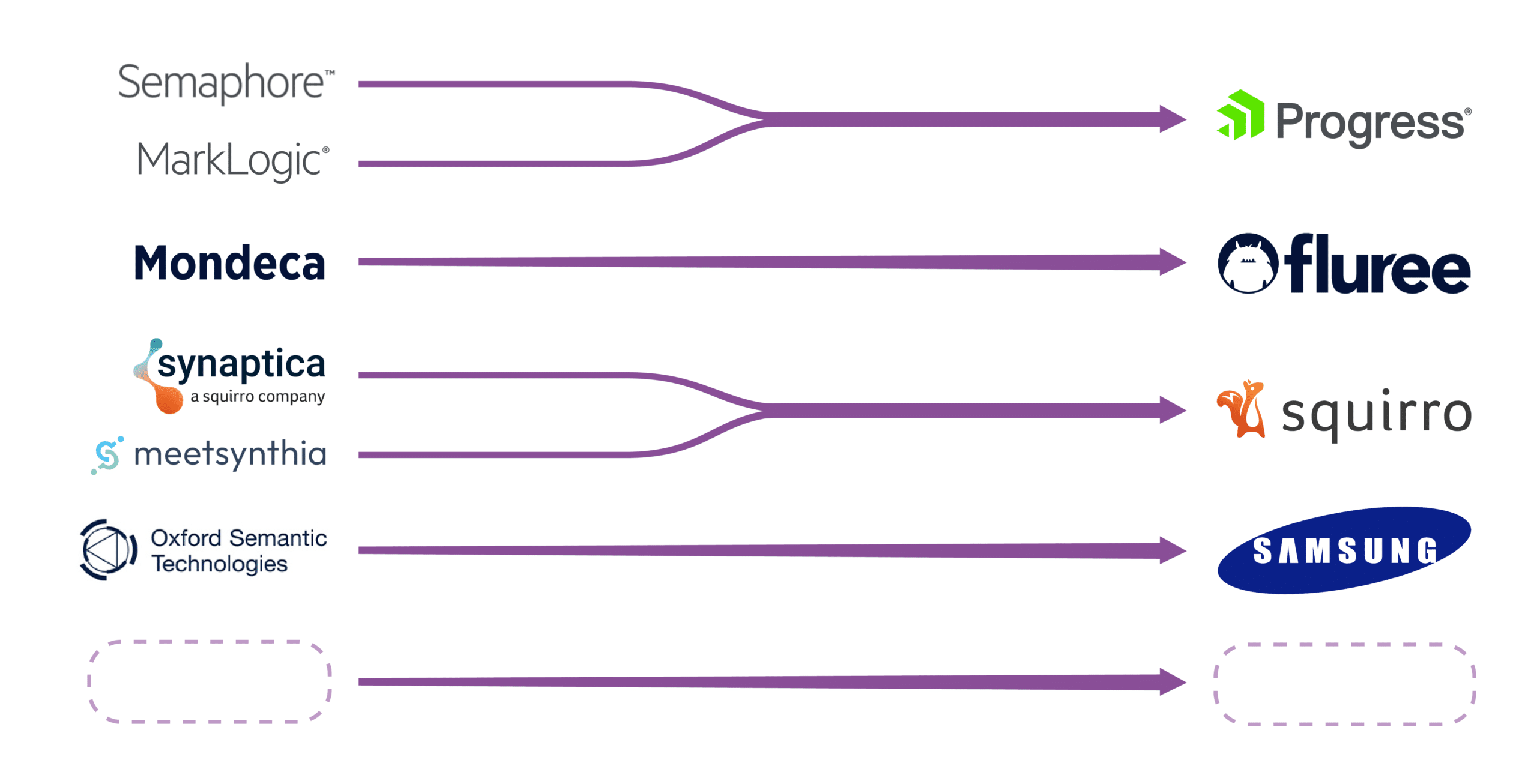As a technology SME in the KM space, I am excited about the changes happening in the semantic software industry. Just two years ago, in my book, I provided a complete analysis of the leading providers of taxonomy and ontology management systems, as well as graph providers, auto-tagging systems, and more. While the software products I evaluated are still around, most of them have new owners. The amount of change that has happened in just two years is incredible.
providers of taxonomy and ontology management systems, as well as graph providers, auto-tagging systems, and more. While the software products I evaluated are still around, most of them have new owners. The amount of change that has happened in just two years is incredible.
We recognized the importance of these products early on at EK. Enterprise-Scale Knowledge Management cannot work without technology solutions that capture, align, and make information discoverable. We partnered with organizations like The Semantic Web Company, Synaptica, OntoText, TopQuadrant, and Neo4j to help some of the world’s most well-known companies solve some of the most complex knowledge management problems.
Now the rest of the industry is realizing the importance of semantics and the semantic layer. Well-funded software companies are acquiring many of the independent software vendors in this space so that they can offer a more comprehensive semantic layer solution to their customers. MarkLogic, an enterprise NoSQL database, bought Semaphore (a taxonomy/ontology management platform) and both were later acquired by Progress Software. Squirro (an Artificial Intelligence (AI) enabled search platform) bought Synaptica (taxonomy/ontology management software) and has also purchased meetsynthia.ai (prompt engineering solution for AI). Fluree (a graph data management platform) bought Mondeca (a taxonomy/ontology management software). In this same timeframe, Samsung Electronics acquired Oxford Semantic (an RDF graph database). In each case, these vendors are looking to offer their customers a single integrated solution for the semantic layer.
Organizations that purchased these products suddenly have risks to their software investment. The new product owner could choose to take the software in a different direction that does not support your use case. You could have new points of contact that do not understand your organization’s needs. Senior leadership in your organization may want to minimize the investment in a tool that was recently purchased out of fear. While less likely in this case, the vendor could also choose to wind down support for the product. On a more positive note, these larger, more well-funded companies might add compelling new features or they might integrate it with their existing tools to provide a comprehensive solution to what you would have had to integrate yourself.
There are two primary drivers behind all of this industry change. The first is the explosion of generative AI. Companies are trying to implement generative AI projects, and they are failing. According to Gartner, 85% of AI projects fail. Data quality and a proper understanding of AI tools and capabilities are two of the most common causes of these failures. The semantic tools we are talking about address these issues. Taxonomy and ontology management systems along with graph databases organize and curate information so that data quality problems are minimized. In addition, many of these tools are now offering frameworks for generative AI solutions. Think of them as a configurable engine on which generative AI solutions can be built. Every software vendor is looking for a way to provide AI solutions to their customers. Our favorite semantic software tools are being bought up so that the vendors can provide a single integrated AI solution to their clients.
The second major driver is the semantic layer. As data continues to grow exponentially, the need to map data in a way that the business understands has become even more critical. One of our retail clients had 12 different point of sale systems. Answering a simple question like “What is an average sales transaction?” was incredibly complicated. A knowledge graph can map each of these data elements to a transaction and a transaction amount in a machine-readable way. Business leaders can ask for this information in a way that makes sense to them and the knowledge graph automatically generates the answers from the data where it sits. As more organizations understand the power of a semantic layer, the need for semantic tools continues to grow. Data vendors see this opportunity and are purchasing semantic tools that they can integrate into their current solution stack.
Given all of the momentum in this area, we will continue to see more acquisitions of semantic software solutions. Our team at EK is watching this industry closely to guide our customers so that they will have the best vendors with the best solutions during this changing time. If you are thinking about purchasing a semantic software product we have a proprietary matrix of semantic solutions that was developed over 10 years and has over 200 requirements for semantic capabilities. If you are concerned because your product was purchased, we know all of the players in the industry and can guide you to the best possible answer for moving forward. Contact us so that we can give you the right guidance both now and in the long term.

